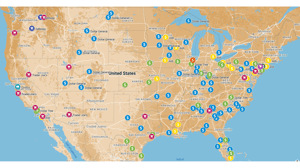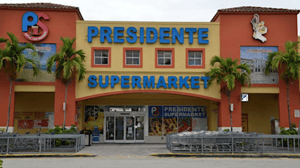Big Retailers Share Data: GMA
In a striking example of trading partner collaboration, most U.S. grocery retailers and mass merchandisers with more than $5 billion in annual sales are sharing weekly and even daily store sales and other data directly with their suppliers at no cost, according to a white paper released last week by the Grocery Manufacturers Association here. While data-sharing emerged in the 1990s, data
July 27, 2009
MICHAEL GARRY
WASHINGTON — In a striking example of trading partner collaboration, most U.S. grocery retailers and mass merchandisers with more than $5 billion in annual sales are sharing weekly and even daily store sales and other data directly with their suppliers at no cost, according to a white paper released last week by the Grocery Manufacturers Association here.
While data-sharing emerged in the 1990s, “data this current and available from this many retailers at this frequency have never before been available to CPG manufacturers,” nor is the data available from “the large third-party data syndicates,” according to the white paper, called the “Retailer-Direct Data Report.”
Among the data that retailers are making available are POS sales, store and warehouse inventory, loyalty-card data, store demographics, market basket data, and shrink and reclaim data, said the report, which was written by Vision Chain, Crossmark and Teradata for GMA.
The report identified more than 30 business benefits that can result from this exchange of retailer data. Among these benefits, which generally accrue to both retailers and manufacturers, are reduced out-of-stocks and inventory, improved forecast accuracy, lower merchandising costs and increased sales.
“Today, retailer-direct data sharing has become a core way of doing business that affords significant advantages to both supplier and retailer,” the report said. “To be competitive in today's economy, industry companies need to understand the mushrooming retailer-direct data-sharing phenomenon and to adopt its collaborative strategies in their organizations.”
While most retailers make their data freely available to suppliers, a few charge subscription fees, the report said, adding that such fees “inhibit collaboration.”
Basing its findings on “an aggregate consensus among supplier firms” in 2008, as well as a survey of suppliers conducted by AMR Research, Boston, the report named 16 food retailers that share detailed data outside of traditional electronic data interchange with suppliers.
Among the U.S. food retailers named were Wal-Mart Stores, Safeway, Kroger Co., Supervalu, Food Lion, Meijer Inc., Wegmans Super Markets, Publix Super Markets and H.E. Butt Grocery Co. U.S. food retailers identified as sharing data on a daily basis included Costco, Food Lion, Hannaford Bros., Target and Wal-Mart.
About the Author
You May Also Like






